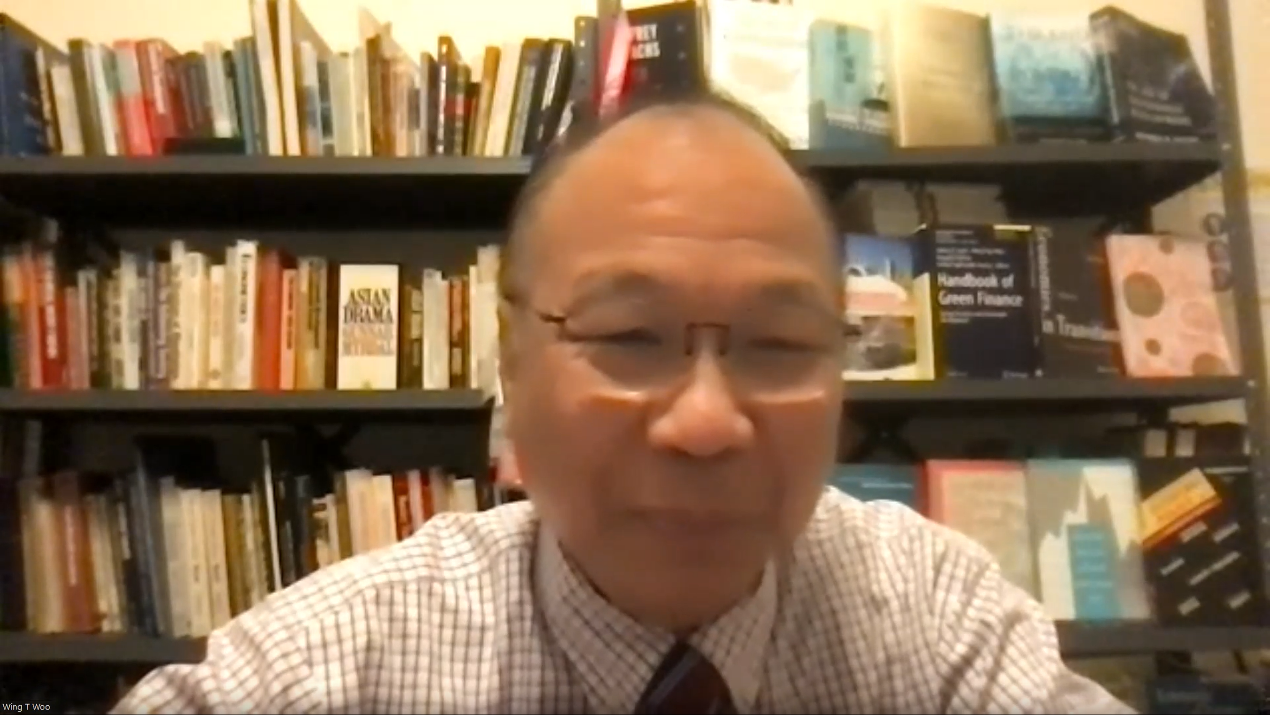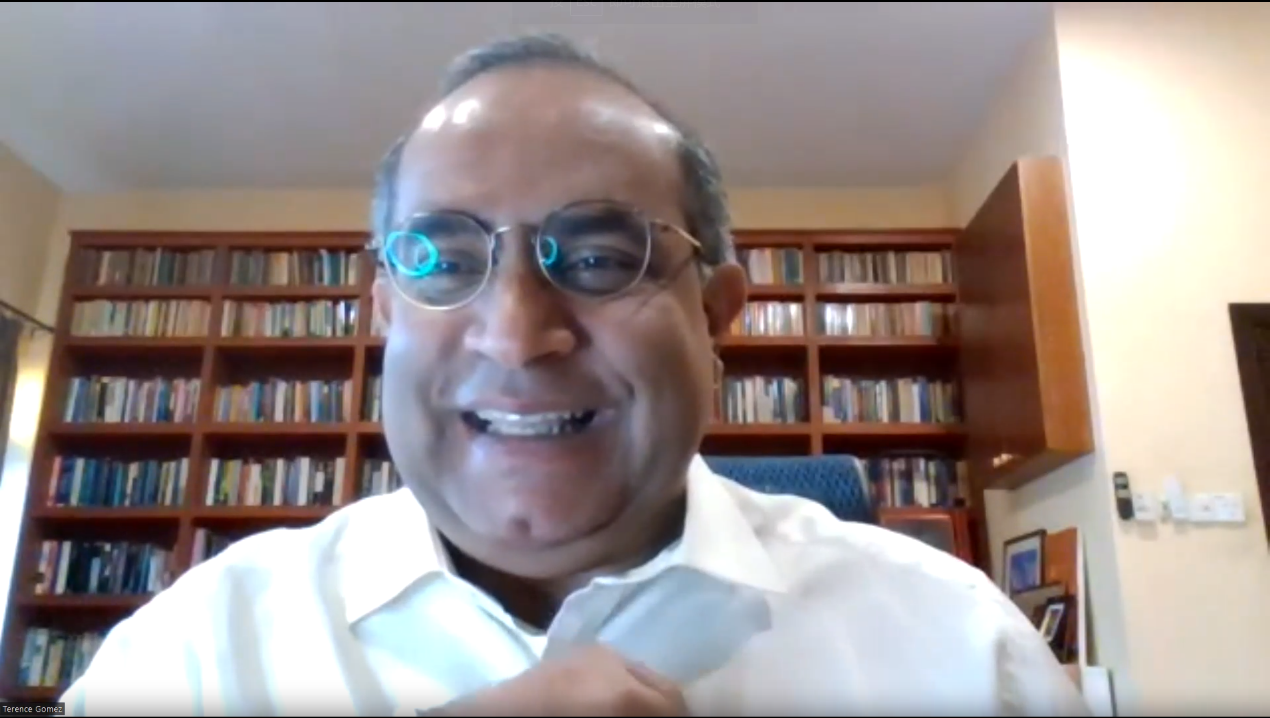The 16th lecture of the "Adventus Amicorum" salon series was held on December 21, 2023, by the Institute of Area Studies, Peking University (PKUIAS) in the form of online conference. Prof. Woo Wing Thye, distinguished professor emeritus from the University of California, Davis, and Prof. Edmund Terence Gomez, professor of Political Economy at the University of Malaya, spoke online from California, the US, and Kuala Lumpur, Malaysia, respectively. The topic of the lecture was “Malaysia in the Middle-Income Trap: The Key Economic Mechanisms behind the Stagnation.” The lecture was moderated by Kong Tao, a senior research fellow from the Institute of Social Science Surveys at PKU. Other participants included postdocs and PhDs from various departments and institutes at PKU, as well as more than 70 scholars from Malaysia and other countries.

At the beginning of the lecture, Prof. Woo Wing Thye made it clear that his presentation would focus on the need for the Malaysian government to empower SMEs to help free Malaysia from the middle-income trap, and to reform its financial system. Before presenting the case of Malaysia, he first criticized the World Bank’s concept of boundaries for the three categories of income levels and introduced the Catch-Up Index (CUI) as a better measure. He then introduced the concept of the middle-income trap and pointed out that Malaysia fell into the trap after the Asian Financial Crisis in 1997. According to him, this phenomenon stemmed from the sharp contraction of private domestic investment in Malaysia. This problem was partly due to the large amount of international investment diverted from Southeast Asia to China after China’s accession to the WTO, but was also caused by the merging of a large number of banks and other financial institutions within Malaysia. The lack of incentives in the consolidated financial system to provide loans to SMEs then led to a general lack of capital for SMEs in Malaysia to expand and improve production efficiency, which in turn led to stagnation in economic growth. Prof. Woo pointed out that climate change and strategic competition between China and the US should provide an opportunity for Malaysia to extricate itself from the middle-income trap, and the Malaysian government should actively carry out financial reform to meet the loan needs of SMEs and promote their development.

Prof. Gomez then pointed out that the root cause of Malaysia’s falling into the middle-income trap has been the resistance of Government Linked companies (GLCs) to reform. He expressed his belief that analysis of the middle-income trap should not only consider economic factors, but also take political factors into account. As a country with a high degree of intervention in the economy for a long time, GLCs are important tools for the policy implementation of the Malaysian government, and they have three functions: cultivating domestic enterprises and developing key economic sectors such as high-tech, ensuring fair redistribution of corporate equity among ethnic groups through selective welfare benefits, and generate profits to promote research and development and technological upgrading. However, Malaysian GLCs exist within very complex networks and lack coordination and cooperation with each other, which had led to problems such as low efficiency, corruption and brain drain, causing Malaysia to fall into the middle-income trap. To this end, Prof. Gomez shared that the Malaysian government should carry out the reform of GLCs and build a coordinated and orderly system to promote equitable development.
During the discussion session, the panelists further discussed how Malaysia could get out of the middle-income trap. Kong Tao pointed out that digital fintech could play a positive role in solving the financing difficulties of SMEs. She discussed with the two speakers the current development of fintech in Malaysia and its role in helping the financing of SMEs. Other panelists also offered their views on why Malaysia was stuck in the middle-income trap and gave related policy suggestions.
Guest Speaker Introduction:
Woo Wing Thye: Distinguished Professor Emeritus, University of California, Davis; Visiting Professor, University of Malaya, Kuala Lumpur; Research Professor, Sunway University, Kuala Lumpur
Edmund Terence Gomez: Professor (retired), University of Malaya
Presentation 1
Presentation 2
Q&A


